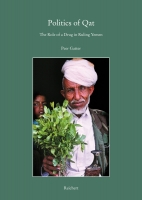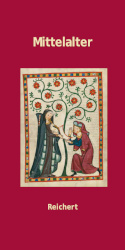Search
Politics of Qat
The Role of a Drug in Ruling Yemen
2012
21.0 x 28.0 cm, 880 p., 13 maps, 32 figures, 423 illustrations b/w, 63 tables b/w, 84 illustrations color, 14 s/w- und 13 farbige Karten, hardback
ISBN: 9783895009105
21.0 x 28.0 cm, 880 p., 13 maps, 32 figures, 423 illustrations b/w, 63 tables b/w, 84 illustrations color, 14 s/w- und 13 farbige Karten, hardback
98,00 €
ISBN: 9783895009105
Short Description
For Imam Yahya, one of Yemen’s last kings, qat was a delight that he praised in poems. For his adversary, the revolutionary al-Zubayri, the plant was the “devil in the shape of a tree«”. Still today the views on qat greatly diverge. For some, qat farming is the perpetuum mobile of Yemen’s rural economy and qat chewing an age-old social pursuit. For others, qat is the main inhibitor of human and economic development in Yemen and is to blame for poverty and corruption and the depletion of Yemen’s water resources.With Yemen’s 2011 “Youth Revolution,” a decade of half-hearted qat policies and missed opportunities has come to an end − a decade, however, that has succeeded in lifting the veil of silence that was cast over qat in media and politics after President Ali Abdullah Salih came to power in 1978. With the forecast depletion of Yemen’s oil and gas reserves within the next decade, the economic importance of qat will further increase and will bring about an important shift in the balance of power.
Description
For Imam Yahya, one of Yemen’s last kings, qat was a delight that he praised in poems. For his adversary, the revolutionary al-Zubayri, the plant was the “devil in the shape of a tree”.Still today the views on qat greatly diverge. For some, qat farming is the perpetuum mobile of Yemen’s rural economy and qat chewing an age-old social pursuit that has helped to preserve Yemeni identity in a rapidly changing world. For others, qat is the main inhibitor of human and economic development in Yemen and is to blame for poverty and corruption, the depletion of Yemen’s water resources and the country’s sloppy approach to fighting Islamist terror.
While some believe that qat chewing was the very motor of Yemen’s “Arab Spring”, others hold it responsible for Yemen’s muddled revolution with its high blood toll. In internet blogs even al-Qaeda, its affiliates, and sympathizers discuss the pros and cons of the drug, and a number of Yemeni suicide bombers have met their fate with qat-filled cheeks. A final decision of al-Qaeda on what stance to adopt towards the drug has seemingly been postponed. The Jihadists want to avoid alienating Yemen’s population with a premature ban of the popular stimulant before having gained firm control over the country. Al-Qaeda has learned from the mistakes of its Islamist sister organization, the al-Shabab militia in war-torn Somalia.
With Yemen’s 2011 “Youth Revolution”, a decade of half-hearted qat policies and missed opportunities has come to an end – a decade, however, that has succeeded in lifting the veil of silence that was cast over qat in media and politics after President Ali Abdullah Salih came to power in 1978. This whitewash had been part of a ruling bargain between the Salih regime and the unruly tribes that had imparted highland Yemen several decades of relative stability and Salih a 33-year rule.
With the forecast depletion of Yemen’s oil and gas reserves within the next decade, the economic importance of qat will further increase and will bring about an important shift in the balance of power from the central government towards the qat producing highland tribes. The challenge of addressing the qat problem is thus tremendous for Yemen’s policy makers. While the transitional government is hesitant about its future qat course, Yemen’s anti-qat activists have seized the current, favorable climate of change. Emboldened by Yemen’s revolution and the ouster of President Salih they have recently launched a series of campaigns against the drug, dubbed a “revolution on one’s self ”.




 Preface
Preface

 Neuerscheinungen 2023/2024
Neuerscheinungen 2023/2024
 Gesamtverzeichnis 2023/2024
Gesamtverzeichnis 2023/2024
 Katalog Oriental Studies & Linguistics
Katalog Oriental Studies & Linguistics
 Mittelalter
Mittelalter
 Deutsche Inschriften
Deutsche Inschriften
 Musiktherapie
Musiktherapie
 Literaturen im Kontext
Literaturen im Kontext